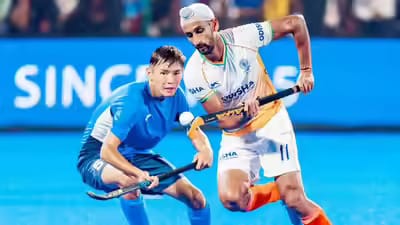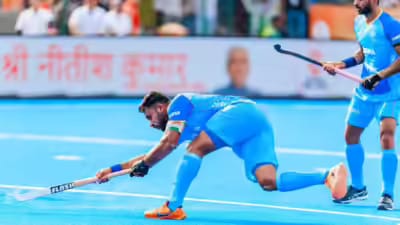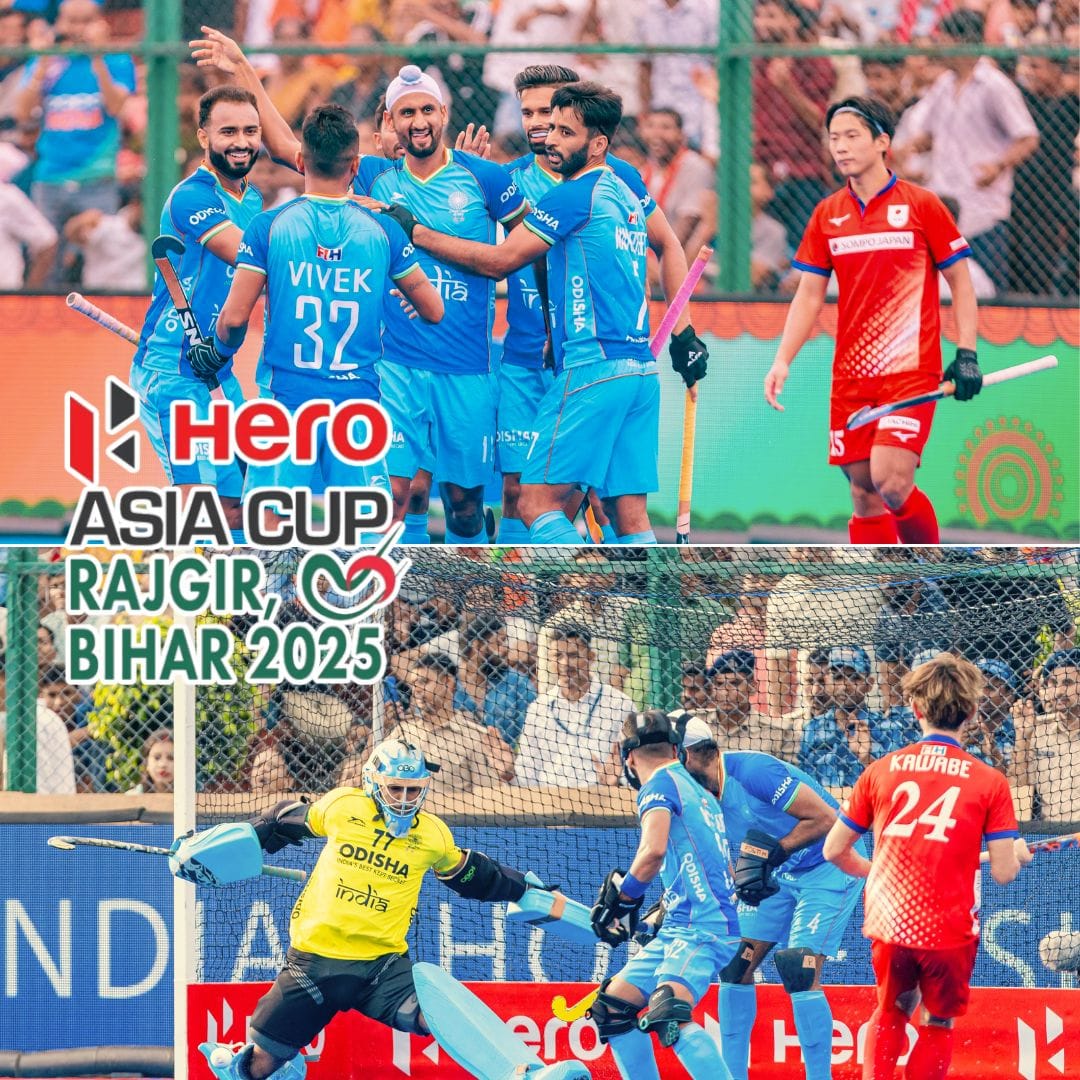Beyond the Boundary: Why Paddy Upton's '5 Leagues Above' Claim Redefines India's Sporting Hierarchy
In a bombshell revelation, renowned mental conditioning coach Paddy Upton compares the Indian men's hockey team to the 2011 Cricket World Cup winners.

Written by Lavanya, Intern, Allegedly The News
NEW DELHI, September 3, 2025
In a statement that has sent shockwaves across the Indian sporting community, Paddy Upton, the celebrated mental conditioning coach, has ignited a firestorm of debate. Upton, a key figure in the backroom staff of both the legendary 2011 Cricket World Cup winning squad and the current Indian men's hockey team, has made a powerful claim: that the hockey team's collective mental strength and professionalism are "five leagues above" the cricket team's. This is more than a casual comparison; it is a profound insight into the unseen forces that drive a team to greatness and a re-evaluation of what constitutes a championship mindset in modern sports.
The Anatomy of a Bold Statement
Paddy Upton's comparison is not an off-the-cuff remark, but rather a calculated and deeply considered analysis of the two teams' working environments and the core values they embody. His assertion that the Indian men's hockey team is a squad of "18 or 20 Virat Kohlis" is the most potent part of his argument. He clarified that this comparison is not about skill or talent, but about a shared, unwavering commitment to a professional lifestyle that he believes is unparalleled.
Upton's statement focuses on the minute details that separate a great team from an elite one: dedication to diet, sleep, and training. While the 2011 cricket team, under the astute leadership of MS Dhoni, was a mentally tough unit that performed under the most intense pressure imaginable, Upton suggests that the current hockey team's collective discipline is on a different plane. He notes that while a player like Virat Kohli stands out in cricket for his unique and obsessive dedication to fitness, in the hockey squad, that level of physicality and professionalism is the baseline for every single member. This isn't just about winning a trophy; it's about a fundamental shift in the culture of Indian sports.
The Unspoken Legacy: The 2011 Cricket World Cup
The victory of MS Dhoni's team in the 2011 Cricket World Cup is a moment etched into the soul of a nation. It was a triumph that ended a 28-year wait and brought joy to a billion fans. The pressure on the team, playing at home, was suffocating. Their journey to the final was a masterclass in handling pressure, from the crucial quarter-final victory over Australia to the high-stakes semi-final against Pakistan.
- The Sprint to Glory: The 2011 campaign was a compressed, high-intensity sprint. The team’s legacy is defined by its ability to rise to the occasion in a series of do-or-die matches. The final, in particular, was a testament to mental fortitude. When India was reeling at 31/2, it was the partnership between Gautam Gambhir and a young Virat Kohli that stabilized the innings, followed by Dhoni's iconic winning six.
- Individual Brilliance, Collective Trust: While the team functioned as a cohesive unit, the campaign was also marked by phenomenal individual performances. Yuvraj Singh was the Player of the Tournament, delivering with both bat and ball. Zaheer Khan led the bowling attack with distinction. The team's strength was in the sum of its brilliant parts, all held together by Dhoni’s calm and decisive leadership. Their mental strength was rooted in a deep trust in each other and their captain's strategy.
The 2011 World Cup team's achievement was a definitive, singular moment of climax. It was a peak reached after a long climb, and its legacy is the memory of that spectacular summit.

The Marathon of Resilience: The Modern Indian Hockey Team
The Indian men's hockey team's journey has been a different kind of challenge altogether. After decades of decline following their golden era, the team had to rebuild from the ground up. Their recent successes, including the bronze medal at the 2020 Tokyo Olympics, mark not just a victory but a fundamental revival of the sport in the country.
- A Continuous Climb: The hockey team’s journey is not a sprint, but a marathon. They have consistently performed at a high level, winning the 2022 Asian Games and the 2024 Asian Champions Trophy. This sustained success demonstrates a deep-seated mental and physical conditioning that goes beyond a single tournament.
- The Collective “Virat Kohli”: Upton’s "18 or 20 Virat Kohlis" observation points to a culture of universal elite professionalism. In a sport like hockey, where the game is continuous and the physical demands are immense, there are no places to hide. Every player must maintain a peak physical condition and a razor-sharp mental focus. This is where Upton's point about their dedication to "sleeping, eating, and training" becomes most relevant. It's a non-negotiable part of their identity as a team. This collective effort, rather than individual heroics, is what sets them apart.
Their bronze medal at the Paris 2024 Olympics, which was their second successive Olympic medal after the Tokyo Games, cemented their status as a global powerhouse once again. This is a testament to the long-term strategic planning and the sustained mental toughness that have been cultivated within the squad.
The Role of Mental Conditioning: A Deeper Dive
Paddy Upton's expertise lies in unlocking the potential of athletes by addressing their psychological makeup. His work with the Indian hockey team is a fascinating case study in modern sports psychology. Unlike in cricket, where players often operate as individuals, hockey demands a more collective and connected mindset.
- Building a Psychological Skill Set: Upton's work is less about giving pep talks and more about equipping players with the tools to manage their minds under duress. He has focused on teaching them to manage distractions, cope with mistakes, and maintain focus in a fast-paced environment. This is a proactive approach, preparing them for the inevitable emotional and mental challenges that come with elite competition.
- From Theory to Practice: The team's rigorous training camp in the Swiss Alps, designed to take them out of their comfort zones, was a practical application of Upton's theories. By forcing players to confront genuine fears—of heights, of the unknown, of physical exhaustion—they were able to build real-world resilience that translated directly to the field. This unique and challenging experience helped forge an unbreakable bond and a shared understanding of what they were capable of.
Rivaling the Cricket Monolith: A New Sporting Dawn?
For decades, cricket has held an iron grip on the Indian sporting landscape, dominating media, sponsorships, and fan attention. Upton’s statement, while focusing on mental toughness, also inadvertently highlights a potential shift in this paradigm. While hockey is not about to unseat cricket as the nation's most popular sport, its resurgence is a powerful symbol of a more diversified and robust sporting ecosystem.
The sustained success of the hockey team, particularly their ability to consistently win major international tournaments and secure Olympic medals, proves that excellence in other sports is not only possible but can also be celebrated with the same national fervor. Their recent achievements have brought the sport back into the national conversation and could inspire a new generation of athletes to pursue non-cricket sports. This is a crucial step towards building a well-rounded sporting culture in India, where multiple disciplines can thrive.

A Legacy in the Making: What Happens Next?
Paddy Upton's claim is a forward-looking one. He suggests that the current hockey team's legacy could surpass that of the 2011 cricket team. This is not to diminish the past, but to acknowledge the potential of the future. The 2011 World Cup victory was a spectacular crescendo. The current hockey team's journey is an ongoing symphony of excellence.
Their legacy will be defined not by a single, iconic moment, but by their sustained dominance. As they continue to build towards the 2026 World Cup and the 2028 Olympics, their success could become a continuous narrative of resilience and triumph. If they can continue to win and inspire, they will create a legacy that is not just about a single trophy, but about the complete revival of a national sport and the establishment of a new gold standard for professionalism and mental fortitude in India.
Unlocking the Discussion
What's the True Measure of Greatness? Is a team's legacy more powerfully defined by a singular, iconic victory that captures the nation's imagination, or by a sustained, multi-year period of excellence and revival?
A Culture of Mental Fortitude: Can it be Replicated? Do you believe the culture of collective mental strength that Upton describes in the hockey team is a result of their sport's inherent demands, or could such a mindset be successfully cultivated in any team, including the high-pressure world of Indian cricket?
Sources
- The Indian Express: Published a quote from Paddy Upton where he compared the Indian hockey team to the 2011 cricket team.
- NDTV Sports and Times of India: Reported on Upton's interviews, where he discussed his role, methodology, and the mental conditioning of the Indian hockey team.
- Paris 2024 Olympics website and various sports news portals: Provided details on the Indian hockey team's and 2011 cricket team's achievements and tournament results.




